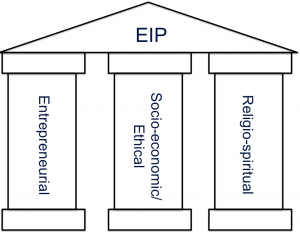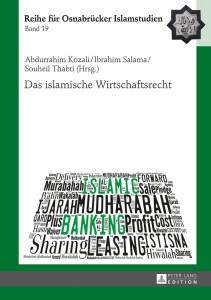Let me share a couple of links related to AI, entrepreneurship, and grand challenges – all in German:
- A book chapter on AI & Future of Work.
- Panel discussion on AI in the service for humans.
- Two podcasts on entrepreneurship, innovation & grand challenges here and here.


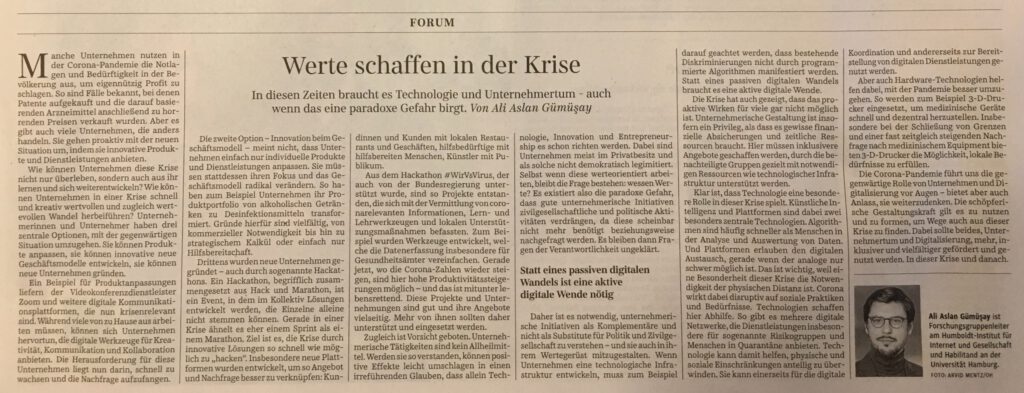
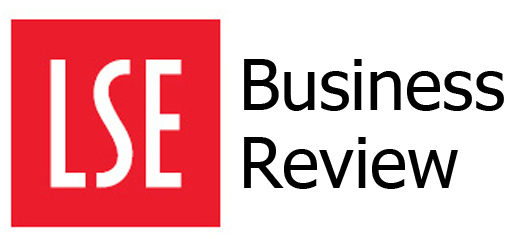
 relatively underexamined in organization theory. In this article, I assert that the institutional logics perspective is especially conducive to examine the macrolevel role of religion for organizations. The notion of the religious logic offers conceptual means to explain the significance of religion, its interrelationship with other institutional orders, and embeddedness into and impact across interinstitutional systems. I argue for intrainstitutional logic plurality and show that specifically the intrareligious logic plurality has been rather disregarded with a relative focus on Christianity and a geographical focus on “the West.” Next, I propose the concept of interinstitutional logic prevalence and show that the religious logic in particular may act as a metalogic due to its potential for uniqueness, ultimacy, and ubiquity. Through illustrations from Islamic Finance and Entrepreneurship, I exemplify implications of logic plurality and prevalence for organizations and societies.
relatively underexamined in organization theory. In this article, I assert that the institutional logics perspective is especially conducive to examine the macrolevel role of religion for organizations. The notion of the religious logic offers conceptual means to explain the significance of religion, its interrelationship with other institutional orders, and embeddedness into and impact across interinstitutional systems. I argue for intrainstitutional logic plurality and show that specifically the intrareligious logic plurality has been rather disregarded with a relative focus on Christianity and a geographical focus on “the West.” Next, I propose the concept of interinstitutional logic prevalence and show that the religious logic in particular may act as a metalogic due to its potential for uniqueness, ultimacy, and ubiquity. Through illustrations from Islamic Finance and Entrepreneurship, I exemplify implications of logic plurality and prevalence for organizations and societies.
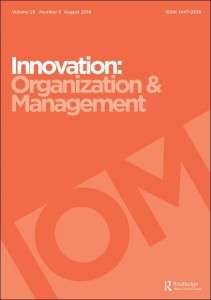
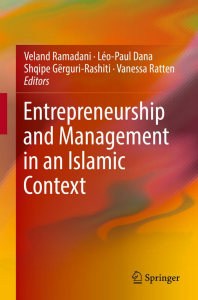 While religion matters in entrepreneurship and management practice, its theory and theorization is dominated by a sacralized secular hegemony. Yet, religion is a social fact that matters in and around organizations; and the social sciences explain – not prescribe – reality. Islam specifically is the second largest religion in the world with a growing number of adherents. Religion in general and Islam in particular thus warrants much more critical engagement and analysis through management scholars. Such scholarly pursuits connect work with worship to examine what I call ‘wor(k)ship’, whereby religious people wish to do well while adhering to their faith, rather than compartmentalizing their lives into different spheres.
While religion matters in entrepreneurship and management practice, its theory and theorization is dominated by a sacralized secular hegemony. Yet, religion is a social fact that matters in and around organizations; and the social sciences explain – not prescribe – reality. Islam specifically is the second largest religion in the world with a growing number of adherents. Religion in general and Islam in particular thus warrants much more critical engagement and analysis through management scholars. Such scholarly pursuits connect work with worship to examine what I call ‘wor(k)ship’, whereby religious people wish to do well while adhering to their faith, rather than compartmentalizing their lives into different spheres.